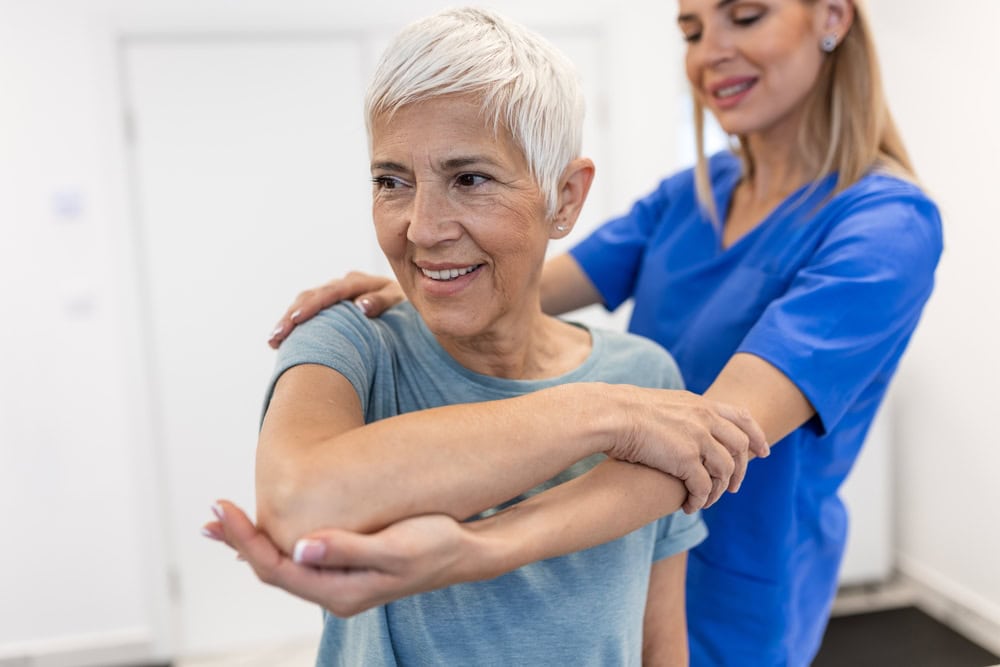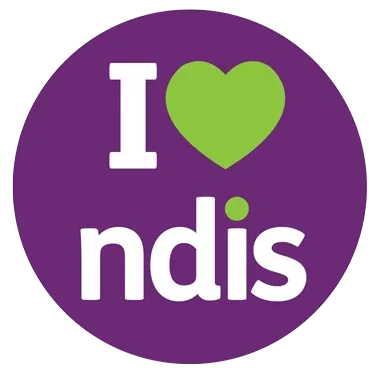Allied Health &
Capacity Building
Support Point Support Coordination – Connecting You to Capacity Building Allied Health
Your Trusted Partner in NDIS Capacity Building
Every participant deserves proper assistance to achieve their maximum life potential. Through our Support Coordination, our team assists you in getting maximum value from your NDIS plan by discovering and linking you with suitable Allied Health practitioners. Our team provides linkage to the highest standard of capacity-building services, which develop your skills and independence and boost your self-assurance throughout Australia.
Our coordinators connect with you, your family, and your support system to identify your objectives while understanding your requirements and personal choices. Our national provider network enables simple access to allied health services that deliver meaningful benefits
What Is Capacity Building in the NDIS?
Capacity Building supports help you gain skills and independence. The services include therapy, health support, and skill development, which allow you to become more independent while connecting with your community and achieving your preferred lifestyle. These supports are funded under categories such as Improved Daily Living, Improved Health and Wellbeing, Improved Relationships, Improved Life Choices, and Improved Living Arrangements.
How Support Point Support Coordination Works
Our team provides complete support throughout your journey to:
- Explain the meaning of your NDIS plan and your funding options.
- Find appropriate allied health providers to meet your needs.
- Book appointments and service coordination using in-person and telehealth visits.
- Monitor your progress while implementing changes to your needs as they evolve.
- Advocate for your preferred options while ensuring your voice remains audible.
When you choose Support Point as your support service, you are never alone. We use technological tools to provide support across urban, regional, and remote Australia and connect you with appropriate professionals regardless of location.
Allied Health Services We Connect You With
Our Support Coordinators maintain a broad network of reliable providers who deliver specialised allied health services designed to meet NDIS objectives.

Occupational Therapy (OT)
Empowering your everyday life.
Occupational Therapists assist their clients in building the skills needed to maintain maximum independence. They evaluate your capabilities and suggest equipment and tools alongside techniques to help you handle obstacles in your home environment, educational facilities, workplaces, and community spaces. They can undertake the following tasks:
- Functional Capacity Assessments: Assessing your strengths and support needs.
- Assistive Technology Recommendations: Advice on mobility aids, communication tools, and daily living equipment.
- Teaches practical techniques that help individuals develop their skills for cooking, dressing, and maintaining their daily routines.
- Environmental Assessments: Home safety reviews and modification planning
Every plan’s development focuses on the participant while integrating their medical requirements with physical, social, and emotional support.

Physiotherapy
Moving better, feeling stronger.
The practice of physiotherapy assists people in maintaining their physical wellness and movement capabilities. Physiotherapists focus on enhancing strength, balance, and endurance and helping Participants heal from injuries or manage ongoing medical conditions. They can support with
- Mobility and Strength Improvement: Exercises for walking, transferring, and physical function.
- Pain Management: Treatments and advice to reduce discomfort.
- Exercise Programs: Tailored routines to keep you active and healthy.
- Postural and Movement Support: Help with seating, positioning, and body mechanics.


Speech Pathology
Enhancing communication and swallowing.
Speech Pathologists provide therapeutic services to help participants of all ages develop communication skills and safe eating techniques. They can provide
- Communication Support: Help with speech, language, and non-verbal communication.
- Swallowing (Dysphagia) Therapy: Assistance for safe eating and drinking.
- Augmentative and Alternative Communication (AAC) systems: Technology and devices for those needing alternative communication methods.
Every plan’s development focuses on the participant while integrating their medical requirements with physical, social, and emotional support.

Psychology
Supporting mental health and wellbeing.
Psychologists use therapeutic methods combined with behavioural strategies to assist their patients in handling emotional states, along with behavioural patterns and mental wellness problems.
The practice includes two main components: Emotional Regulation teaches methods for understanding emotions, while Behaviour Management supports positive behavioural transformations. They are specialised in the following:
- Emotional Regulation: Techniques to understand and manage feelings.
- Behaviour Management: Support for positive behaviour change.
- Mental Health Therapy: Counselling and psychological support for anxiety, depression, and trauma.
- Cognitive Assessments: Understanding how you learn and process information.


Behaviour Support
Positive approaches to behaviour challenges.
Specialist Behaviour Support practitioners develop methods and plan to reduce concerning behaviours while promoting alternative positive responses.
- The Behaviour Support Plans (BSP) are step-by-step safety protocols to handle behaviours.
- The Restricted Practice Assessments verify that all restrictions fulfil three essential criteria: necessity, minimum, and legal basis.
- Positive Behaviour Support: Teaching new skills and improving quality of life.

Social Work
Connecting you to the community and support.
Social Workers help people handle complicated life situations by assisting them to find available resources and building their support systems.
- The staff provides Psychosocial Support, which helps people manage through various life changes while dealing with stress and mental health problems.
- The advocacy services protect your rights, together with your preferred choices.
- The service offers help for three domains, including Housing support, Justice support, and Family Reconnection.


Counselling
Listening and supporting emotional well-being.
Counsellors provide a safe space to discuss life’s challenges and work through emotional or relationship issues. They can also provide:
- Trauma-Informed Therapy: a sensitive approach to clients who have experienced trauma
- Grief and Relationship Counselling: to help people with grief and loss, conflict resolution needs, and changes.
- Emotional Wellbeing: Building resilience and self-confidence.

Exercise Physiology
Promoting health through movement.
Exercise Physiologists develop personalised fitness programs based on your disability needs and medical requirements to help you stay physically active while controlling chronic health conditions. They can
- Creates fitness and activity plans matching your physical capabilities and interests.
- Provide Lifestyle and Disease Management support for Participants with diabetes, heart disease, and obesity.
- Connect participants with inclusive sports and fitness groups in their community.


Dietetics / Nutrition
Fueling a healthier you.
Dietitians offer expert nutrition advice to help you eat well and feel your best. They can also assist you with:
- Meal Planning and Dietary Advice: Meal Planning and Dietary Advice which includes balanced meal suggestions
- Swallowing or Texture Modification: Swallowing or Texture Modification services to provide safe eating experiences for people with swallowing difficulties.
- Health Goals Support: Support through guidance for weight management and diabetes control and allergy management.

Podiatry
Keeping you on your feet.
Podiatrists care for your feet and lower limbs, helping with mobility and comfort. They can also provide:
- Foot Care: routine examinations, together with nail maintenance and skin treatment
- Pressure Relief Strategies: protect participants from developing sores or experiencing injuries.
- Pain and Condition Management: pain management and treatment for conditions affecting the feet including deformities.

Developmental Educators
Skill-building for independence and inclusion.
Developmental Educators (especially in South Australia) support people with disability to build life skills, manage behaviour, and participate in community life. They will help you with:
- Life Skills and Social Interaction: Training in self-care, relationships, and communication.
- Positive Behaviour Support: Proactive approaches to behavioural challenges.
- Cognitive and Functional Development: Supporting learning and daily functioning.
Why Choose Support Point?
- National Provider Network: Access to hundreds of trusted allied health professionals, wherever you are.
- Remote & Telehealth Options: Connect with therapists and providers from your home if travel is challenging.
- Truly Person-Centred: We listen to your goals and preferences, and tailor supports to match your unique journey.
- Ongoing Support: Regular check-ins, plan reviews, and easy adjustments as your needs change.
- NDIS Expertise: Up-to-date knowledge of funding rules, provider quality, and best practice in disability support.
Get Started Today
Are you ready to maximise your NDIS plan benefits? Our Support Coordinators to match you with appropriate allied health services for capacity building. Our team provides support to make your NDIS journey more straightforward and more effective while ensuring empowerment throughout your process.
Support Point Support Coordination – Your link to better health, skills, and independence.

